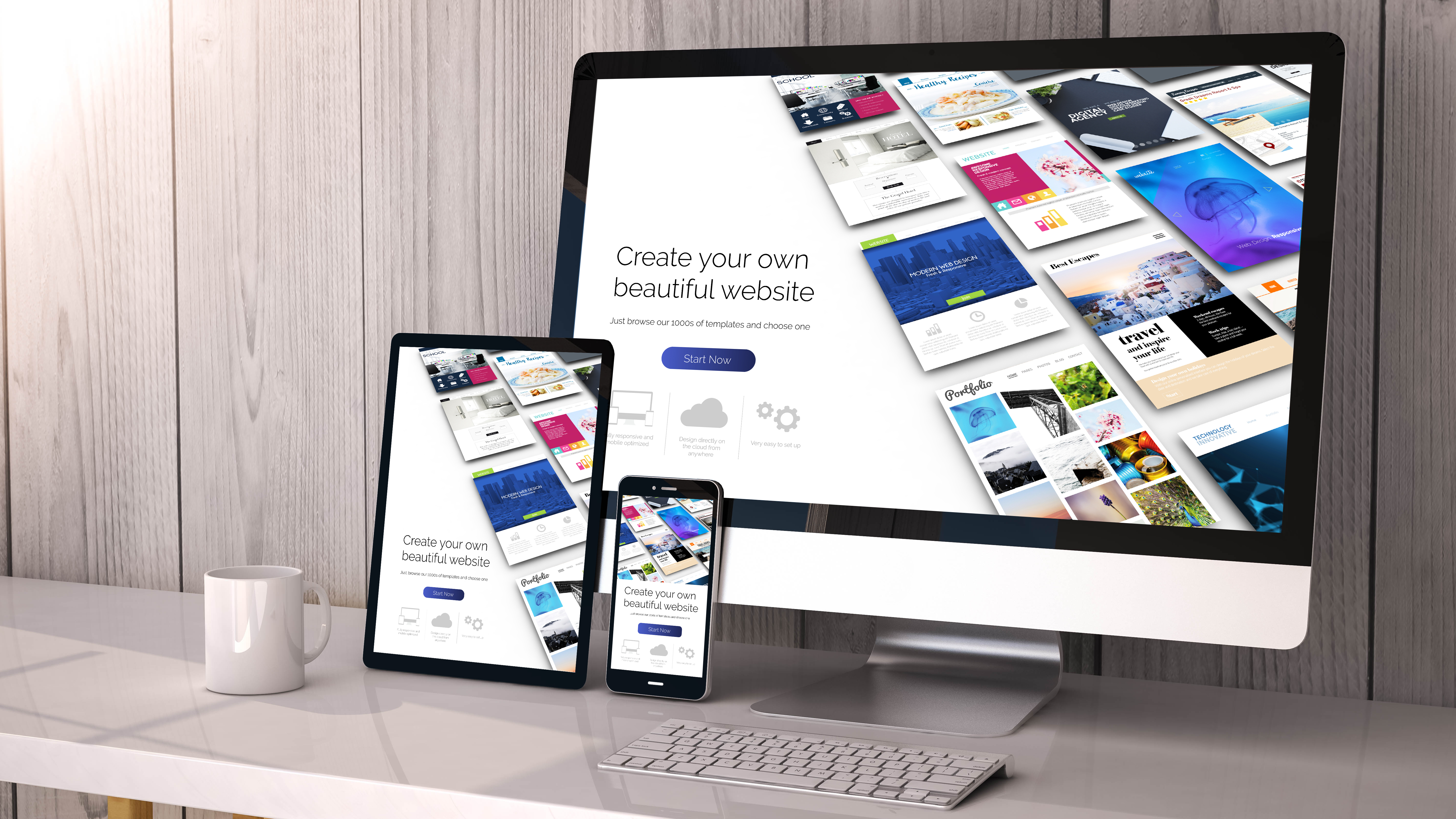5 reasons why an AI website builder is better than a normal one
What are the key benefits of AI website builders?

Apart from democratizing access to web design, AI website builders also help professionals and businesses save money and time. Arguably, they also produce better results when compared to standard no-code tools in the hands of non-technical users.
Let’s talk about 5 reasons why the best AI website builders are better than regular ones, whether you’re a professional designer looking for faster results or a business user with no experience in web development.
5 reasons why AI website builders are better
AI website builders improve upon traditional no-code platforms in several key ways. Here are 5 reasons why you should choose an AI-powered website builder over a normal one.
#1 Faster time to market
One of the key advantages of using an AI website builder is the speed at which you can create and launch a fully functional website. Traditional website development can take weeks or even months, requiring extensive coding, design work, and content creation. With a no-code platform, that timeline comes down to just a few days of work.
In contrast, AI website builders can generate a complete website in just a few minutes based on your inputs and preferences. This enables businesses to establish an online presence and start engaging customers much more quickly.
#2 Search Engine Optimization (SEO)
Normal website builders often require additional optimization to make your site search engine friendly and primed to convert visitors into customers. However, AI website builders can handle much of this automatically.
For example, Wix AI optimizes technical SEO elements like meta tags, alt text, and sitemaps with minimal manual input. Durable's platform goes a step further, using GPT-3 to generate SEO-optimized content for each page based on your industry.
Sign up to the TechRadar Pro newsletter to get all the top news, opinion, features and guidance your business needs to succeed!
#3 Better-looking designs
Even the most easy-to-use standard website builders require you to have a working knowledge of web design principles to get started. AI website builders, on the other hand, use machine learning algorithms to automatically generate visually appealing designs based on your industry, content, and style preferences.
Platforms like Wix, Framer, and TeleportHQ, for example, use deep learning to create unique layout combinations based on modern design standards. Because these platforms are already trained on the best design material, it saves you time and effort making your design look good.
#4 Improved user engagement
AI website builders excel at creating websites that are not only visually appealing but also optimized for user engagement. By analyzing user behavior and preferences, these builders can recommend layouts, color schemes, and content that resonate with your target audience.
What’s more, many of these platforms also come with innovative tools like intelligent chatbots, predictive search, and advanced heatmapping to help you analyze and improve engagement. For example, Hostinger AI Builder features an AI heatmapping tool that can quickly identify areas where visitors are likely to pay more attention.
#5 Better scalability
As your business grows and evolves, your website needs to adapt and scale accordingly. AI website builders make it easy to add new pages, features, and functionality to your site without requiring extensive technical knowledge.
With a traditional website builder, adding new elements or making significant changes can be complex and time-consuming, often requiring the assistance of a developer. AI builders, however, come with assistive technologies like the ability to generate custom layouts and containers using simple prompts. This makes adding new content quicker and easier.
What makes AI website builders different?
AI website builders leverage technologies like machine learning to automate and simplify the website creation process. They analyze user input, recommend design elements, and generate personalized layouts, content, and media based on your preferences.
Unlike a traditional no-code platform, AI website builders don’t have to rely on extensive manual effort or pre-built templates with limited customization. Instead, they can create unique tailored designs for complex business use cases with just a few clicks.
But it doesn’t stop there. AI platforms are constantly evolving, and with that, these new website builders support the ability to generate custom layouts, text, images, and code based on simple prompts, taking customizability to a whole new level.
So, how does it all work? AI website builders use a few key technologies that enable them to automatically generate layout combinations, text, images, and code to create fully-functional websites from scratch. Here are the most important ones:
- Generative AI: Refers to AI systems that can create new content, such as text, images, audio, and code, based on the data they were trained on. Generative AI enables an AI website builder to automatically create page layouts, text content, images, and functional code based on simple user prompts.
- Deep Learning: Deep learning is a subset of machine learning that uses artificial neural networks with many layers (deep neural networks) to learn from large amounts of data. In an AI website builder, deep learning models would be used for understanding the user's intent from their natural language input, identifying the key elements and layout for the website, and generating the relevant text and visual content.
- Computer Vision: Computer vision is a field of AI that focuses on enabling computers to interpret and understand visual information from digital images and videos. Computer vision is used to automatically analyze and understand any images the user provides, such as identifying the subject matter, detecting faces/objects, and determining the best way to incorporate the images into the website layout and design.
- Natural Language Processing: NLP is a branch of AI that deals with giving computers the ability to understand human language as it is spoken and written. In an AI website builder, NLP would be used to interpret the user's natural language commands and understand what kind of website they want to create.
- Autonomous Agents: An autonomous AI agent is a system that can perceive its environment, make decisions, and take actions to achieve a goal, without needing direct human control. AI website builders use autonomous agents to guide design choices, create advanced automations, and build interactive chatbots.
Do you really need an AI website builder? Summary
AI website builders offer several compelling advantages over traditional builders, but they may not be the best fit for every situation.
If you prioritize speed and efficiency, for example, AI can be an excellent choice. AI platforms typically come packed with tools to help you save time and effort bringing your website to market, including features like custom code generation, automatic content creation, intelligent search optimization, and more.
However, if you require a highly specific design or advanced functionality, a traditional builder may offer more flexibility. AI builders typically provide a range of templates and design options, but they may not accommodate every unique requirement. AI is only useful when your task is easy to automate, so complex design work will require manual intervention.
Note that with most website builders, AI features typically come at a premium compared to normal functionality. You should invest in it only if you’re confident that the website you’re looking to build isn’t particularly tricky to generate or customize.

Ritoban Mukherjee is a tech and innovations journalist from West Bengal, India. These days, most of his work revolves around B2B software, such as AI website builders, VoIP platforms, and CRMs, among other things. He has also been published on Tom's Guide, Creative Bloq, IT Pro, Gizmodo, Quartz, and Mental Floss.
- Owain WilliamsB2B Editor, Website Builders & CRM